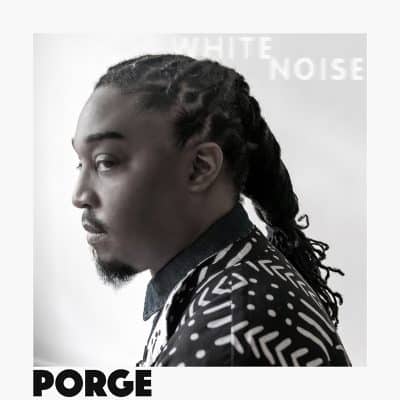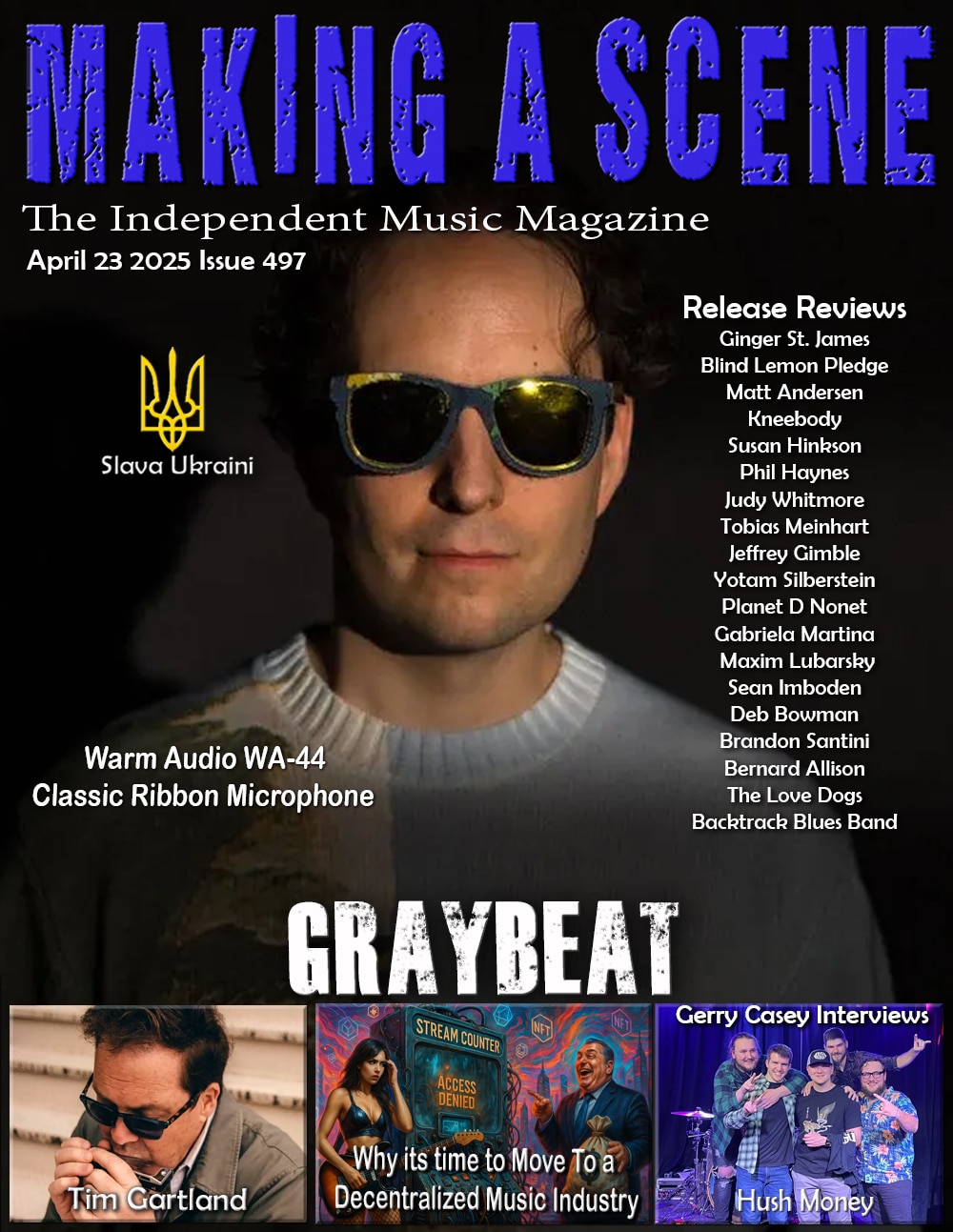George Burton White Noise
 George Burton
George Burton
White Noise
Porge
Acclaimed pianist, composer, producer, and visionary George Burton delivers his searing statement on the struggles of Blacks in this current age on White Noise. It is a call for Black resistance and global resistance to the structures of colonialism, caste systems and even slavery which are still present, albeit more disguised. Think of it as a modern day mashup of Max Roach, Sun Ra, Gil Scott Heron, The Last Poets, and to some extent Curtis Mayfield. Contemporary projects such as Dana Murray’s 2018 Negro Manifesto, D’Angelo’s 2015 Black Messiah, Kendrick Lamar’s 2015 To Pimp a Butterfly as well as projects from avant bluesman Fantastic Negrito come to mind as well. Yet, Burton has his own unique way of presenting the narrative, mixing spoken work, poetry, vocals, and infectious jazz from some of the best musicians in New York, Philadelphia, and Chicago. Burton says this, “White Noise …is a reflection of the world we live in today–its chaos, beauty, and contradictions.Through this album, I wanted to explore the weight we carry, the resilience of Black people, and the ways we seek joy and hope amidst the noise.”
Burton, of course, is a Philly native that spends most of his time in the New York scene. He held down the piano chair in the Sun Ra Arkestra for ten years, so that reference to Sun Ra carries much depth. His solo career boasts these albums – 2016’s The Truth of What I Am > The Narcissistm 2020’s Rec-i-proc-i-ty, and his off center 2023 Christmas album The Yule Log. His style is wildly eclectic, mixing his songwriting with hip-hop, electronic music, and a form of African music called Xhosa. Here he stays totally on the electronic side, playing Rhodes, Wurlitzer, and synths.
Burton taps a wide range of contributors from educator Jane Elliott, Sun Ra, poet Dante Clark, and vocalist Siya Makuzeuni and Alexa Barchini, with lyrics from the Detroit hip-hop duo The Black Opera. Musicians include trumpeter Marquis Hill, saxophonists Dylan Band, Chris Lewis, and Emilio Modeste, bassists Derrick Hodge, Junius Paul, Ty Allen, and Pablo Menares; and drummers Joe Dyson, Anwar Marshall, Nazir Ebo, Michael Piolet, Corey Rawls, and co-producer James “Biscuit” Rouse. This is an album that took some time to record as there is no core band per se. Rouse, Menares and Band appear on more tracks than the others but only three or four of the fourteen.
Burton begins with oratory over a light backdrop, basically imploring his audience to ‘do something” in “The Great Decision.” Makuzeuni makes the first of her four vocal appearances in the African infused “Back Home.” We hear the first of what are and likely to be three singles in “Heard But Not Seen” featuring Burton’s Philly collaborator on tenor and the vocals of Makuzeuni set again in a a Xhosa context. The piece plays tribute to the silent power of unseen voices. The phrase is typically associated with how how some adults would want to see children but in Burton’s take, it could refer to any marginalized group, whose thoughts and ideas may eventually be acknowledged but too often under-recognized. We later hear the poets The Black Opera describing the burden Black people carry. Here is the last verse -”… They rarely acknowledge what they done is water torture; running like a faucet in the flood, It’s hard to notice. They throw the stone and hide the hand that feeds you; Yeah, the breed’s new, but it’s the same evil, They hate you ’cause they can’t be you, deceitful. They need your grace like space in a cathedral To help amplify the white noise that sheep will sleep to.
Later we hear the insightful words of poet Dante Clark laying out the difficulty of finding hope in a world of oppression and bigotry in “A Color for Hope,” the angst amplified by Marquis Hill’s stellar trumpet playing. This is the second verse – They say it takes unlearning to get to the soul of yourself. I guess my toxic traits have a color too: red, white, and blue. Oh, and green, green, the color of willful ignorance. And green, the color of “I need to get these bills paid too” I pursue a happiness that’s been called criminal, Called the cops nearby, wonder “what’s so funny?” Called, the joke is I become target under suburban skies, Become delinquent under the weight of nobility’s lies.
We also hear Alexa Barchini singing the chilling words of the title track as well as standout solos from Chris Lewis in the instrumental “in The Labyrinth of the Free,” Band in “Doubt” and the closing “The Giver” and Modeste’s soprano accompanying the spoken word of “What We Do In the Present.” Throughout Burton delivers a series of genre-defying, interlude-like instrumentals to give us pause and reflect on the messaging in this formidable work that goes beyond simply challenging the status quo. It may not be a bang-your-chest call to action but if one invests the time to appreciate the words, including writer Nadia Owusu’s liner notes, it should at a minimum raise consciousness.
– Jim Hynes
Buy Us a Cup of Coffee!
Join the movement in supporting Making a Scene, the premier independent resource for both emerging musicians and the dedicated fans who champion them.
We showcase this vibrant community that celebrates the raw talent and creative spirit driving the music industry forward. From insightful articles and in-depth interviews to exclusive content and insider tips, Making a Scene empowers artists to thrive and fans to discover their next favorite sound.
Together, let’s amplify the voices of independent musicians and forge unforgettable connections through the power of music
Make a one-time donation
Make a monthly donation
Make a yearly donation
Buy us a cup of Coffee!
Or enter a custom amount
Your contribution is appreciated.
Your contribution is appreciated.
Your contribution is appreciated.
DonateDonate monthlyDonate yearlyYou can donate directly through Paypal!
Subscribe to Our Newsletter
Discover more from Making A Scene!
Subscribe to get the latest posts sent to your email.












































